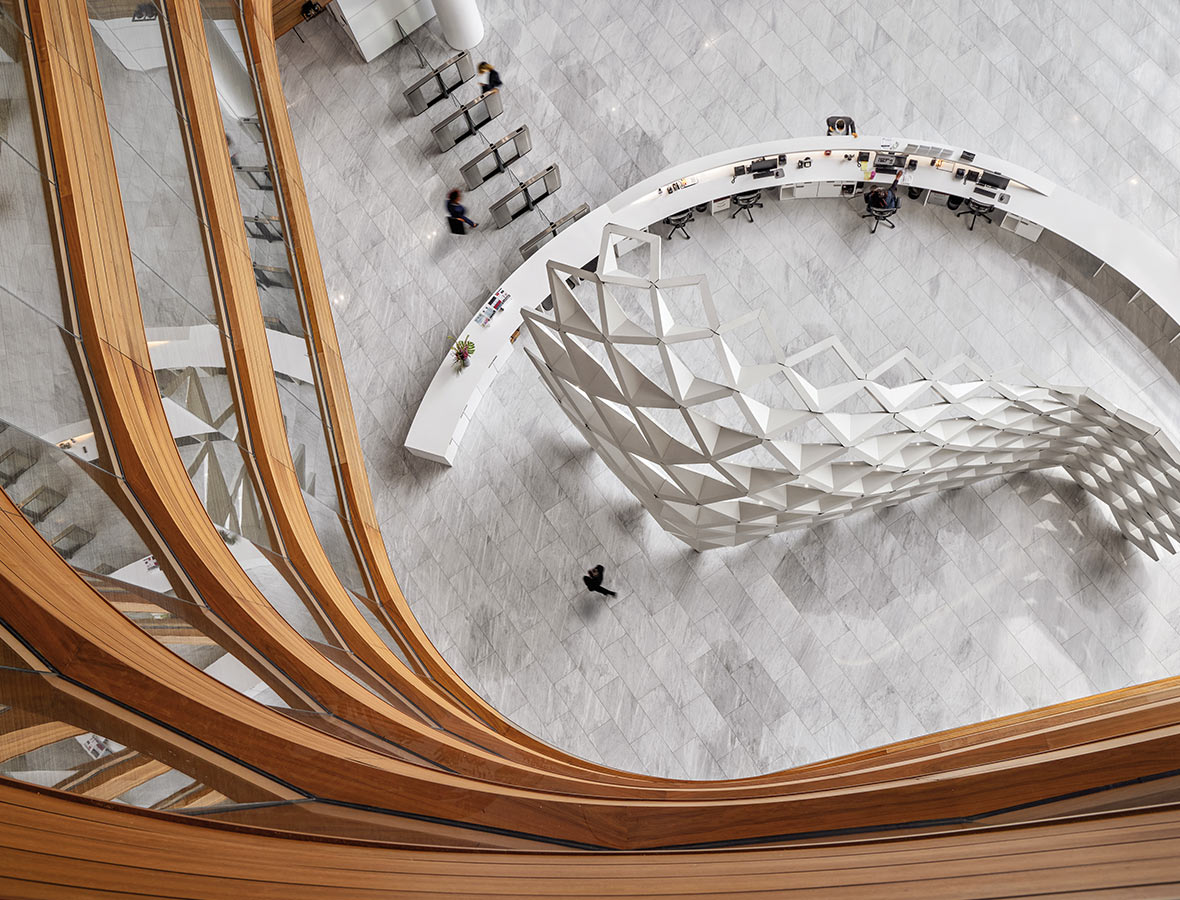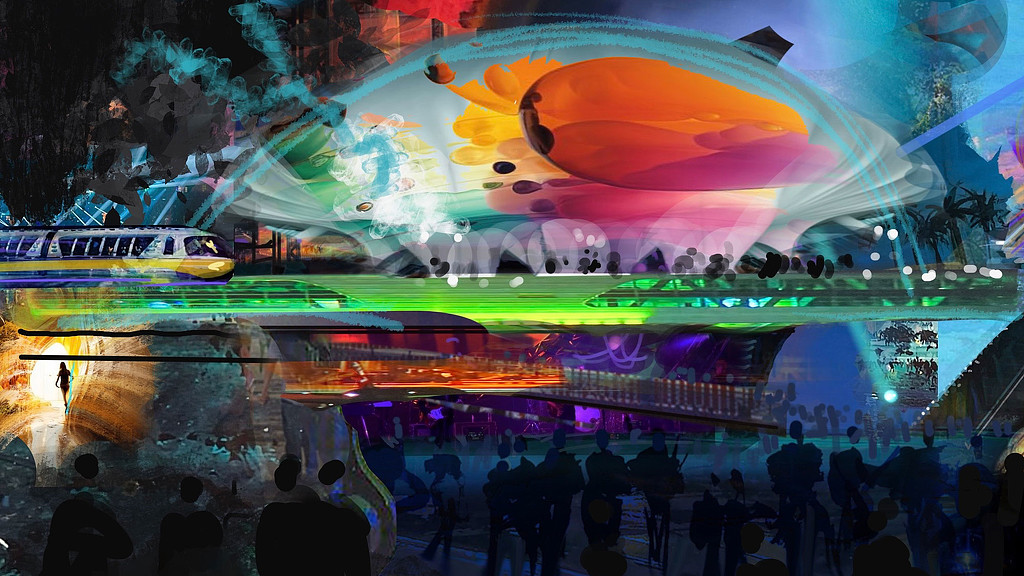Trends to Watch: The Future of Entertainment in the Built Environment
November 29, 2023 | Q&A with Lexi Barry and Elisabeth Papadopoulos
Editor’s Note: This blog is part of our Design Forecast blog series, looking at what’s next in 2024 and beyond.
In a time of rapid change and global uncertainty, the entertainment industry is in a state of transition as consumers scrutinize the price of experiences. At the same time, entertainment has never been more critical to transport and inspire and bring cheer, connection, and shared delight. We sat down with Lexi Barry, Entertainment leader, and Elisabeth Papadopoulos, creative advisor, to discuss the trends shaping the future of the entertainment industry and to explore how opportunities for immersive experiences and unique storytelling can provide a competitive edge.
How is the entertainment industry changing, and what new opportunities does this present for content creators, developers, and property owners?
Lexi Barry: If the 2023 Entertainment labor union strikes taught us anything, it’s that the entertainment industry is changing, and that change is coming from the ground up. We believe it’s never been more critical to demonstrate clear, deep, and authentic respect for creatives. We see this trend manifesting in the types of partnerships that will emerge between content creators — ranging from the high-profile to the grassroots — and developers and property owners are looking to pursue new opportunities to bring unique storytelling into the built world.
Historically, there’s been a gap between those with funding and those with ideas, and location-based entertainment has been the exclusive purview of big studios and companies that have both. Moving forward, we anticipate the rise of demand for direct partnerships between creatives and builders, stewarded by teams like Gensler who have a unique respect for both groups and a deep vocabulary in both arenas.
Elisabeth Papadopoulos: To echo what Lexi was saying, it’s about empowering new clients to break into the marketplace. Historically, unless you’re one of the big players, like Universal or Disney, you’re not entering the location-based entertainment arena, because this is a big money game, and you also have to own Intellectual Property (IP). Now, there’s an opportunity for people who have content but might not know how to get into this space to bring it to the built environment. And so, for us, it’s about being that connective tissue, and helping to empower our clients by convening or facilitating these new types of partnerships. We can do this at scale, and we can do this for different audiences, even for a grassroots community.

What role will entertainment play in helping to repurpose or reimagine underutilized real estate?
LB: We believe that entertainment has a unique role to play in creating community vibrancy by reimagining vacant or underutilized commercial real estate, such as empty malls and retail spaces. We see increasing interest in cultivating these spaces with good design to bring life and purpose by crafting experiences that invite communities to gather and connect, feel joy, and find meaning. We believe entertainment experiences will take over these spaces with increased frequency, revitalizing empty properties with participatory community engagement. Retail, especially big box retail, has the optimal scale, circulation, and foot traffic to create some of these multifaceted experiential zones.
Why is it so important right now for entertainment experiences to earn their price of admission?
EP: In moments of financial volatility and ongoing crisis, entertainment experiences must truly earn their ticket price. Global wages have rarely kept pace with global inflation, and individuals are tightening their leisure spending. At the same time, entertainment experiences have never been more critical. It is in these moments that opportunities for shared human delight — chances for community belonging and escapism — become increasingly important to psychological well-being, endurance, and hope. Entertainment experiences must respond by going beyond the expected and the ordinary to truly captivate and transport, to connect people through shared joy, and to deliver wonder at value, in order to maintain relevance and thrive in this complex marketplace.
Why is authenticity a key differentiator for immersive experiences?
EP: Immersive has become a buzzword across multiple industries ranging in application from digital technologies to physical retail and everything in between. This reflects consumers’ desire for experiences that transport, delight, entertain, and engage. But many immersive experiences fall short of truly delivering on this mandate. What distinguishes a good immersive experience from the pack is suspension of disbelief; it’s about how much a visitor must suspend their disbelief to be able to fully participate in an immersive experience. If that barrier to entry is high, the impact always suffers. We forecast that there will be increased focus on the quality of immersive experience and on how authentic that experience can be based on multimodal design, and on ease of engagement. This is where storytelling in the built environment has a unique advantage. As humans, we all can’t help but engage with our world in an embodied way. Beautifully built, multisensory, and innovative worlds naturally compel us with immersion that is authentic, lasting, participatory, and repeatable.
How are you seeing these trends play out in other markets, such as the Middle East?
LB: Historically, major entertainment destinations have centered in geographies like North America, Europe, and East Asia. We’re seeing that marketplace grow and stretch to include more diverse audiences as middle-class communities arrive in different parts of the world, and as developers invest in emerging markets in the Middle East, North Africa, South Asia, and South America, among other locales. For example, countries like Saudi Arabia and other parts of the UAE have a lot of money to spend, they have underdeveloped land, and they are looking to give their younger residents reasons to stay local, rather than move overseas. It’s less around creating entertainment destinations for the sake of buying a ticket and experiencing a theme park, and more around creating new local economies that incorporate experiences in retail and live music in combination with master planning. Entertainment becomes part of the foundational DNA for the entire district. They’re interested in growing their local economies with opportunity, entertainment, and jobs.
For media inquiries, email .

